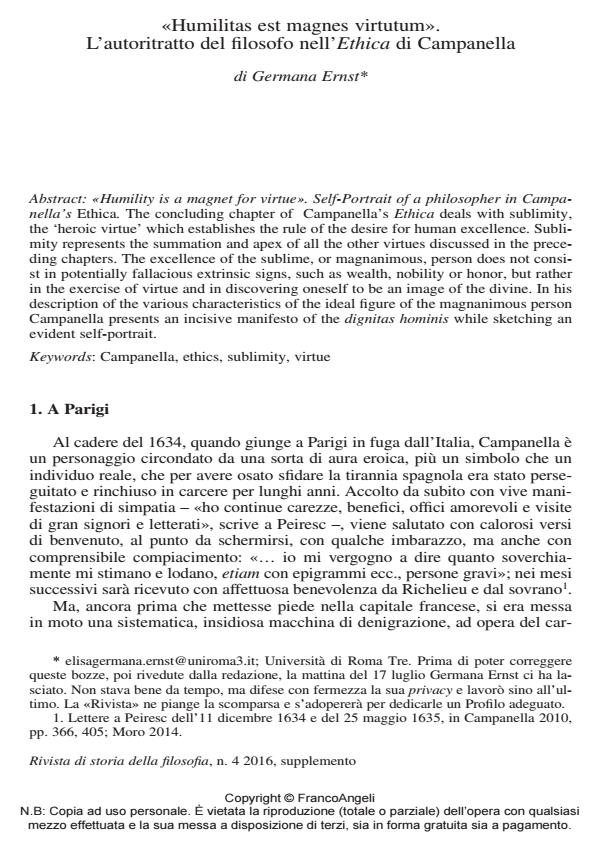«Humilitas est magnes virtutum». L’autoritratto del filosofo nell’Ethica di Campanella
Titolo Rivista RIVISTA DI STORIA DELLA FILOSOFIA
Autori/Curatori Germana Ernst
Anno di pubblicazione 2016 Fascicolo 2016/suppl. 4
Lingua Italiano Numero pagine 13 P. 111-123 Dimensione file 108 KB
DOI 10.3280/SF2016-004-S1009
Il DOI è il codice a barre della proprietà intellettuale: per saperne di più
clicca qui
Qui sotto puoi vedere in anteprima la prima pagina di questo articolo.
Se questo articolo ti interessa, lo puoi acquistare (e scaricare in formato pdf) seguendo le facili indicazioni per acquistare il download credit. Acquista Download Credits per scaricare questo Articolo in formato PDF

FrancoAngeli è membro della Publishers International Linking Association, Inc (PILA), associazione indipendente e non profit per facilitare (attraverso i servizi tecnologici implementati da CrossRef.org) l’accesso degli studiosi ai contenuti digitali nelle pubblicazioni professionali e scientifiche.
Ethica. The concluding chapter of Campanella’s Ethica deals with sublimity, the ‘heroic virtue’ which establishes the rule of the desire for human excellence. Sublimity represents the summation and apex of all the other virtues discussed in the preceding chapters. The excellence of the sublime, or magnanimous, person does not consist in potentially fallacious extrinsic signs, such as wealth, nobility or honor, but rather in the exercise of virtue and in discovering oneself to be an image of the divine. In his description of the various characteristics of the ideal figure of the magnanimous person Campanella presents an incisive manifesto of the dignitas hominis while sketching an evident self-portrait.
Parole chiave:Campanella, ethics, sublimity, virtue
Germana Ernst, «Humilitas est magnes virtutum». L’autoritratto del filosofo nell’Ethica di Campanella in "RIVISTA DI STORIA DELLA FILOSOFIA" suppl. 4/2016, pp 111-123, DOI: 10.3280/SF2016-004-S1009